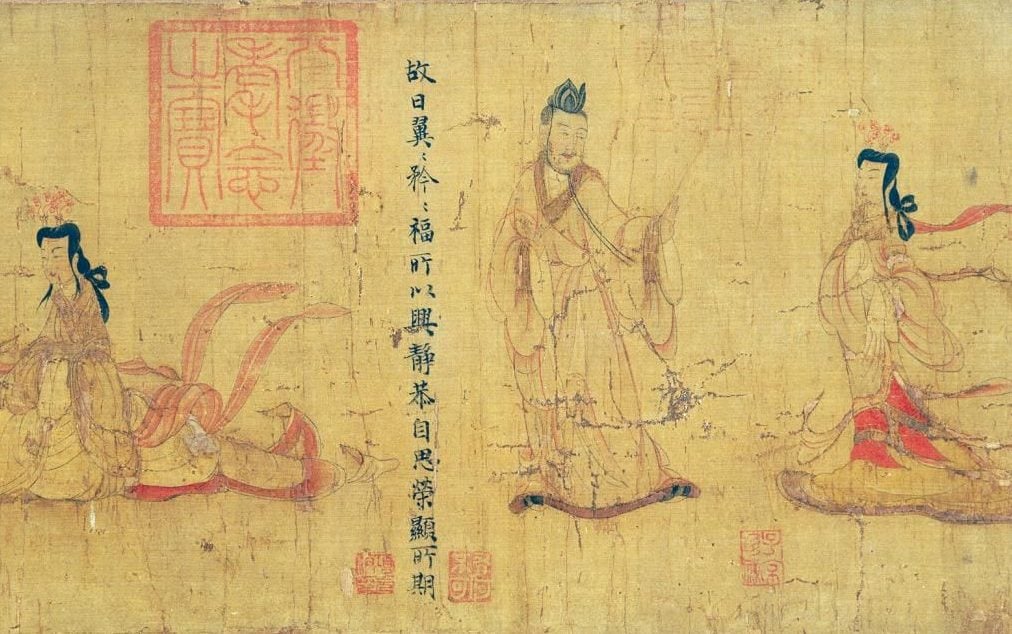
The British Museum, embroiled in a high-profile theft scandal, is fending off restitution demands from several countries, with China most recently joining demands for the London institution to return improperly acquired art and artifacts held in its collection.
China published its formal request in the state-run English-language newspaper Global Times, listing some of the museum’s roughly 23,000 Chinese artifacts, including “Liao tri-colored luohan statues, ritual bronzes from the Shang and Zhou dynasties, stone buddhist sutra scrolls of the Wei and Jin dynasties, and other extremely valuable national treasures.”
“The vast majority of the British Museum’s huge collection of up to eight million items came from countries other than the U.K., and a significant portion of it was acquired through improper channels, even dirty and sinful means,” read the editorial.
Calls for restitution from the British Museum have been strengthened in recent weeks in the wake of the revelation that an employee appears to have been stealing nearly 2,000 objects from the museum’s collection—including gold jewelry and semi-precious stones—and selling them on eBay. (Because many of the targeted artifacts were uncatalogued, the full extent of the theft may never be known.)
An external view of the British Museum on February 13, 2023. Photo by Leon Neal/Getty Images.
The museum has fired Peter John Higgs, its senior curator for Greek and Roman art, who is believed to be responsible for the thefts. Hartwig Fischer, the institution’s director, has since resigned his post, ahead of schedule, in response to the scandal.
The British Museum has long held that it is better equipped than other nations with less well-endowed institutions to safeguard historic artifacts—but that such a large-scale inside job went undetected for so long gives countries like Nigeria and Greece added ammunition in their battles for restitution of the Benin Bronzes and the Parthenon Marbles, respectively.
“It’s shocking to hear that the countries and museums that have been telling us that the Benin Bronzes would not be secure in Nigeria, have thefts happening there,” Abba Isa Tijani, director of Nigeria’s National Commission for Museums and Monuments, told Sky News.
“When this happens from within, beyond any moral and criminal responsibility, a major question arises regarding the credibility of the museum organization itself,” Greece’s Minister of Culture, Lina Mendoni, told Greek newspaper To Vima.
Visitors view the Parthenon Marbles, also known as the Elgin Marbles, at the British Museum in London on January 9, 2023. The ancient sculptures were taken from the Parthenon temple at the Acropolis in Athens in the early 19th century by British diplomat Thomas Bruce, the earl of Elgin. Photo by Daniel Leal/AFP via Getty Images.
A member of Parliament, Bell Ribeiro-Addy, has also been critical of the museum. “One of the most insulting reasons that they’ve given is that the other countries that these items belong to would either not be able to take care of them or they are likely to be stolen,” she told the Guardian. “But you’ve got people in this country putting them on eBay.”
Countries like Greece, Nigeria, and China have become increasingly vocal in their belief that cultural artifacts that were seized or looted by colonial forces should be returned to where they came from—even before there was reason to doubt the British Museum’s ability to safeguard its treasures.
Ethiopia has called for the restitution of the Maqdala Collection of weapons, jewelry, and religious artifacts, which the British seized during a military operation in 1868. India has sought the return of the Amaravati Stupa, one its largest known friezes, which the British dismantled and sent to the U.K. beginning in 1879. And in May, Asantehene Otumfuo Osei Tutu II, King of Ghana, asked that the institution restitute gold jewelry the British army looted from the Asante Palace in 1874.
Ghana is calling for the British Museum to return Asante King’s bracelet with gold ornaments and glass beads, looted during an 1874 war. Photo courtesy of the British Museum, London.
“These objects are largely sacred ones and their return is about more than just restitution,” Nana Oforiatta Ayim, a member of Ghana’s Restitution Committee, told the BBC in May. “It is also about reparation and repair, for the places they were taken from, but also those who did the taking.”
The British Museum has always rejected these claims, citing the British Museum Act, which prohibits the nation’s public institutions from deaccessioning collection objects in almost all circumstances. (In March, Prime Minister Rishi Sunak said there were no plans to change the law.)
“It is obviously very hypocritical and ridiculous to use a law set by oneself as an excuse for refusing to obey international morality and fulfill international responsibility,” the Global Times wrote. “The British Museum is a microcosm of the history of British colonial expansion. Even if the U.K. has wiped the fingerprints of the looters on these artifacts, it cannot erase the true ownership of these cultural properties.”
The editorial went viral on Weibo, the BBC reported, with half a billion views on the hashtag translating to “The British Museum please return Chinese antiquities,” which topped searches on the Chinese social media platform Monday morning.